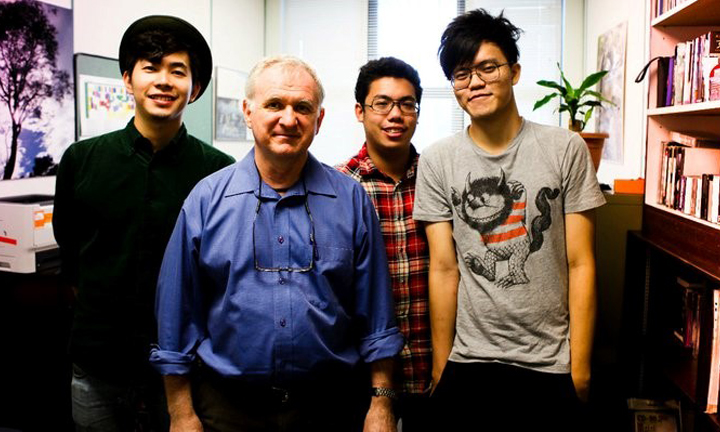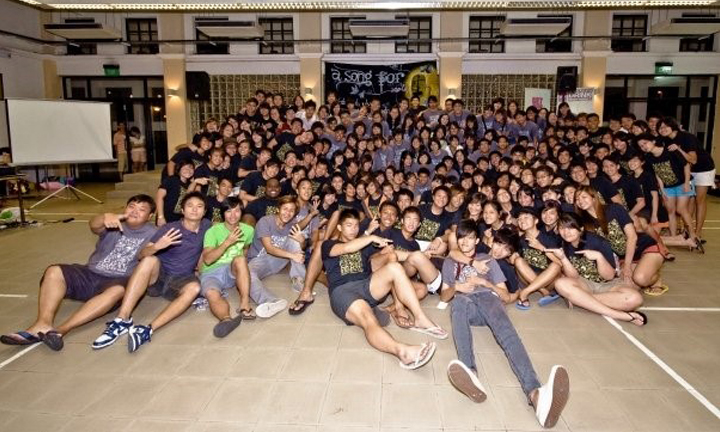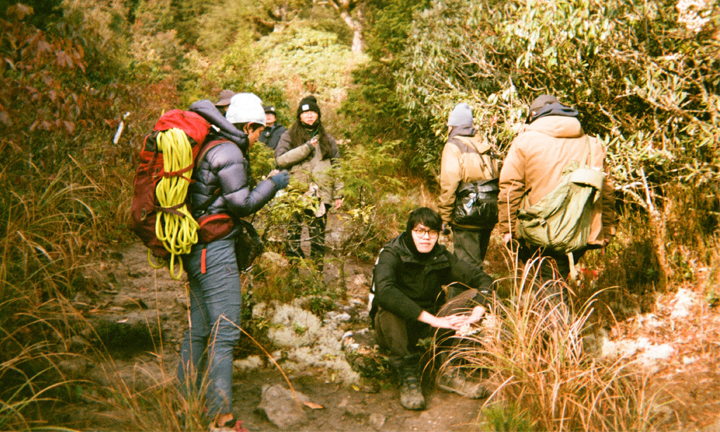Cannes' nod for Singaporean filmmaker with a social mission
Chiang Wei Liang, a graduate of NTU Singapore communication studies, is the first Singaporean to win the prestigious Camera d’Or Special Mention at Cannes Film Festival. He shares why he wants to help the marginalised in his films.
By Nur Isyana Isaman
Chiang Wei Liang (WKWSCI/2013) is a multi-award-winning filmmaker. After attaining his degree at NTU Singapore, he began producing short films and a feature film.
His films were recognised by Berlin International Film Festival 2016, Kaohsiung Film Festival 2018, and finally, the Cannes Film Festival 2024.
Yet, being a filmmaker was not part of his plan.
Wei Liang dreamt of becoming a journalist and looked up to a journalism lecturer who taught at the Wee Kim Wee School of Communication and Information, which led him to pursue a Bachelor of Communication Studies at NTU in 2008.
However, in the first year, he changed to specialise in copywriting and advertising, which he realised was more suited to his creative style.
He enjoyed writing but did not truly feel satisfied until he attended the image and sound production course by Dr Kym Campbell, an NTU senior lecturer and department lead in digital storytelling, broadcast, and cinema studies.
“Although, at that time, we were in a broadcast school and not a film school, Dr Campbell believed in my ability and gave me the freedom to do a short video I envisioned for my project. He was a very encouraging mentor with a good listening ear. I still remember our conversations during consultations, which left an impression on me,” shared the 37-year-old who is based in Taiwan.
 Wei Liang (first from right) and his friends with Dr Kym Campbell (second from left).
Wei Liang (first from right) and his friends with Dr Kym Campbell (second from left).
Driven by an interest in Taiwanese New Wave films, he did his second-year exchange programme in Taipei and took up roles related to the filmmaking process, as a production assistant and sometimes film editor.
From then onwards, he spent his undergraduate days shuttling between Taiwan and Singapore. He spent the first semesters of his Years 2 to 4 in Taiwan, pursuing parallel courses at local universities and returning to Singapore for about four months each year to take his second semesters at NTU.
 During his second year at WKWSCI, Wei Liang became the chairperson leading the freshman orientation programme for his juniors.
During his second year at WKWSCI, Wei Liang became the chairperson leading the freshman orientation programme for his juniors.
After graduating from NTU, he moved to Taiwan. He pursued a master’s degree in film directing at the Taipei National University of the Arts with a scholarship from Singapore’s Infocomm Media Development Authority. While there, he received mentorship from the acclaimed Taiwanese film director Hou Hsiao-Hsien.
Telling real-life stories on reels
Following visits to the Taiwan immigration agency for visa matters, he made friends with several Southeast Asian migrant workers whom he often bumped into at the agency. Realising how they were marginalised, he wanted to help ease their plight.
Using his basic DSLR camera, he filmed and directed videos of their living and working conditions for them to use as supporting evidence for visa appeals. That marked the start of his endeavour into filmmaking – the migrant workers became his muse, and some of their stories headlined his short films.
“Besides being creatively satisfied, I have a social responsibility as an artist who makes films. My choice to focus on socially driven films is partly influenced by my initial interest in journalism and its values, which I learned at NTU,” he said.
 Wei Liang (second from right) at the Cannes Film Festival 2024. (Photo credits: Instagram/@chiang.weiliang)
Wei Liang (second from right) at the Cannes Film Festival 2024. (Photo credits: Instagram/@chiang.weiliang)
Wei Liang’s debut feature film, Mongrel, which he wrote and directed, centres on an undocumented migrant worker whom a local man exploits to carry out caregiving duties in Taiwan’s mountainous rural area.
Mongrel received the Camera d’Or Special Mention, which recognises deserving films that did not win the main Camera d’Or prize for best first feature films.
While filming Mongrel, they had to pause during a key scene inspired by a medical incident involving Wei Liang’s uncle and his domestic helper. The real emergency medical technicians who had been hired to act in the film were needed for an emergency at a nearby house.
However, they were unable to save the older man who suffered a cardiac arrest. The ambulance arrived 45 minutes later because they were in a landlocked area among Taiwan’s mountains.
“It made me feel guilty. We have been given a lot of money through grants to make films highlighting the plight of less fortunate people. Maybe all the money should have gone into building infrastructure that could have saved lives. My point is, when one makes films out of real stories like these, the experiences that you encounter can leave a deep and lasting impact on you,” said Wei Liang.
Continuing his social mission
Wei Liang received the WKWSCI Emerging Star Awards from his alma mater in 2017 for his work in highlighting socio-political issues in Asia that are underrepresented in mainstream media.
He tries to stir small societal shifts in every piece of his work because change matters more than awards for him.
He said: “I am satisfied that the film and my team are recognised for their work, but there is no big joy for me.”
Furthermore, he feels that film awards can be subjective and are not a measure of quality. For him, filmmaking is never about awards and glamour.
 Chiang Wei Liang (centre) on the Mongrel filming set in the mountainous area of Taiwan.
Chiang Wei Liang (centre) on the Mongrel filming set in the mountainous area of Taiwan.
His key challenge in filmmaking is overcoming the emotional impact he experienced while filming real-life stories – something that he says aspiring filmmakers need to be prepared for.
“It is not about chasing your dreams; there will be sacrifices that you and the people around you have to make,” he said.
Wei Liang has been living in a different country, apart from his parents for over a decade. But they find ways to be supportive of his filmmaking pursuit and even accompanied him to Cannes. However, they still wish he holds a regular office job.
When he is not making creative films, Wei Liang spends his time doing commercial film advertisements, which form the bulk of his income, and that is mainly spent on his creative films.
“I separate my commercial work from my creative work. For commercial advertisements, I direct the films, but the client makes the final call; I am providing a service to them. But making creative films is an art,” he said.
His work for Mongrel is not done. After its premiere in Cannes, he plans to take the film to the Golden Horse Awards. He also hopes it will be released commercially, including in Singapore, by next year.
“I hope to make legacy films. Mongrel has successfully broken many ceilings in a country with many feel-good films that mostly avoid sensitive topics. It is a Taiwanese film by a Singaporean director with a universal theme about migrant workers and palliative care,” said Wei Liang.
For his next film, he will still focus on migrant workers, and wants to continue telling their stories onscreen. He said: “More needs to be done, especially in terms of legislation changes to address the marginalisation of migrant workers.”







